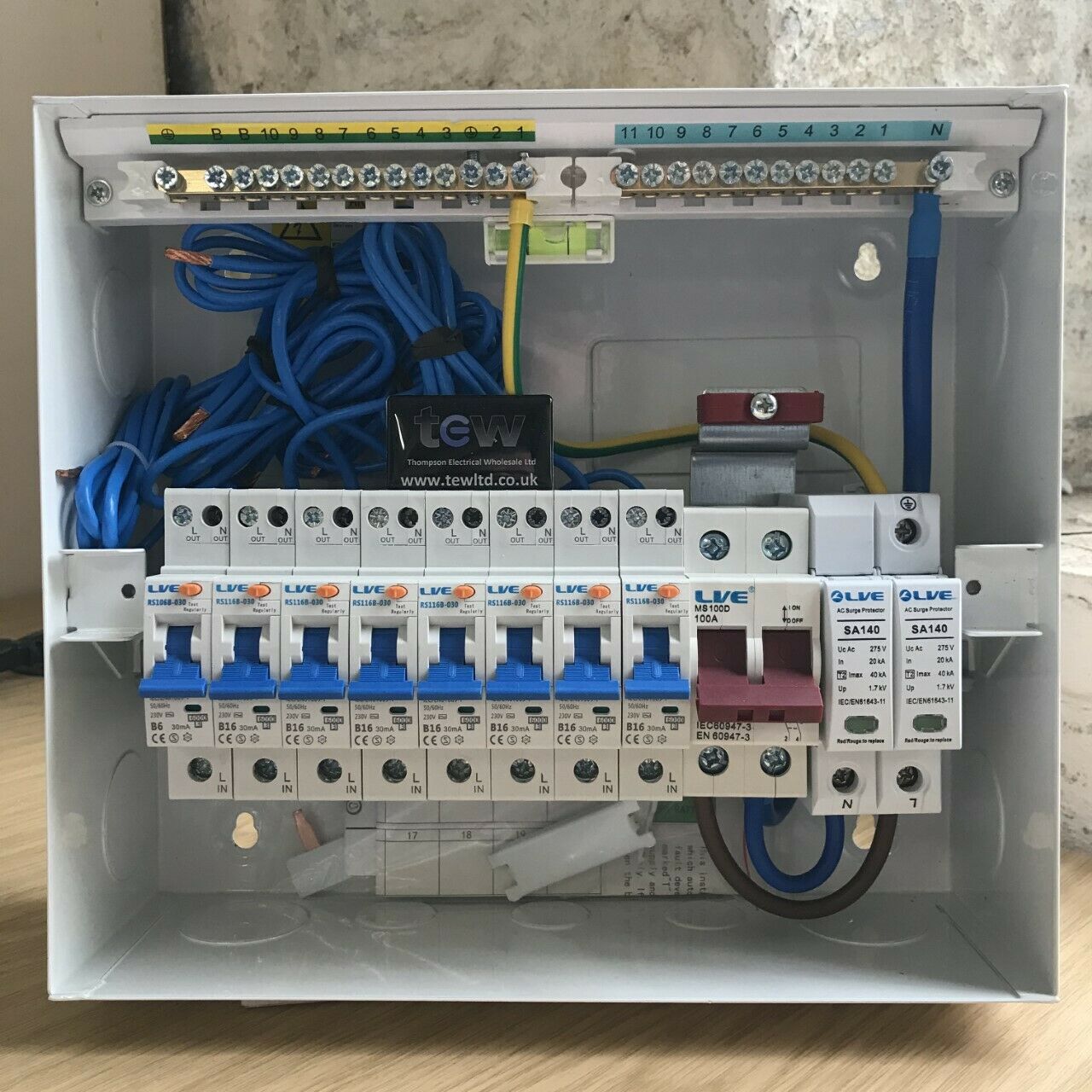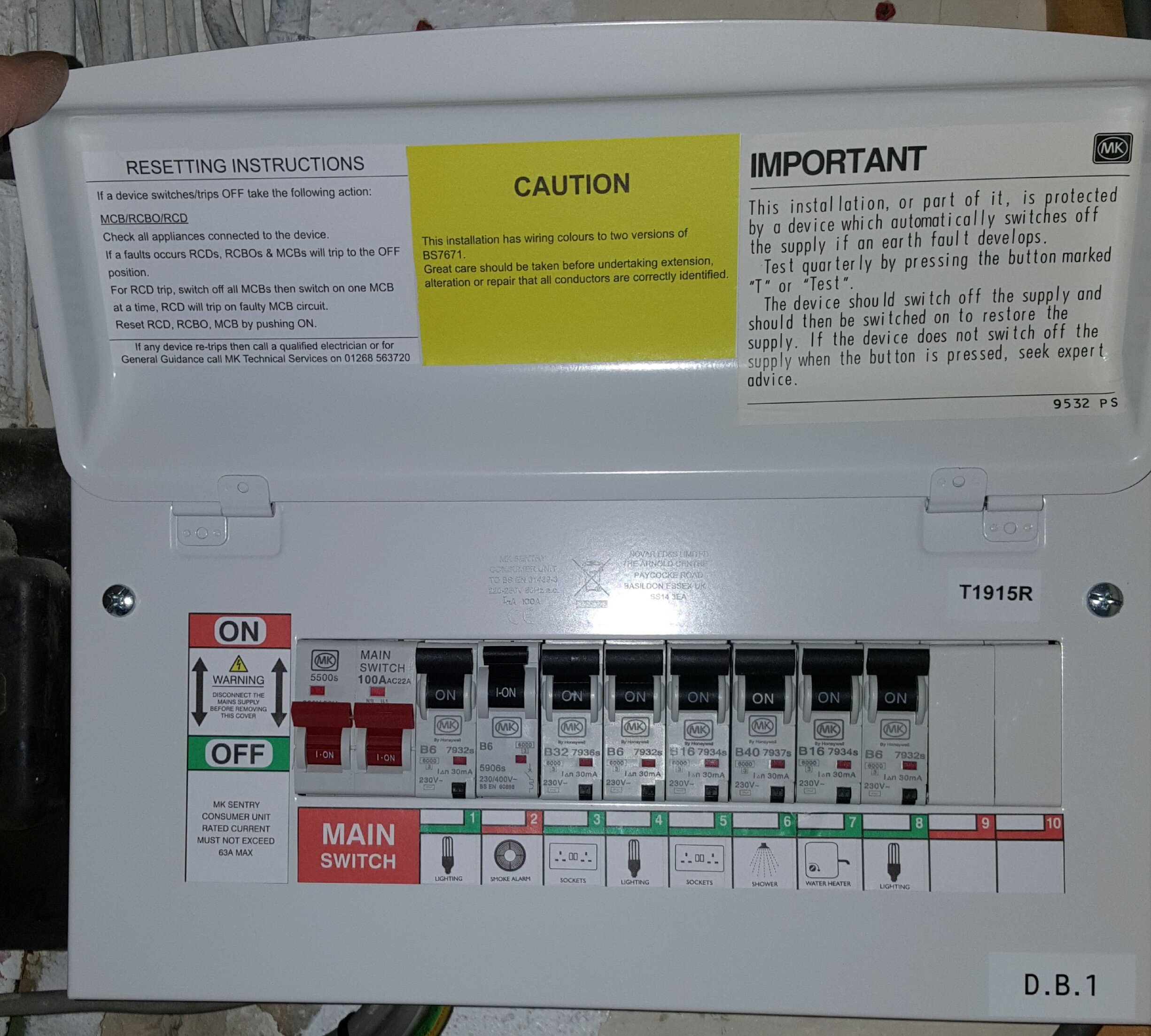A Comprehensive Guide to Keeping Your RCBO CONSUMER UNITS Successfully
A Comprehensive Guide to Keeping Your RCBO CONSUMER UNITS Successfully
Blog Article
The Function of Customer Units in Efficient Energy Monitoring Solution
Customer systems are essential to effective power administration systems, serving as the main distribution factors for electric power within structures. The advent of smart technologies has even more boosted their functionality, allowing for real-time data tracking and nuanced energy usage analysis.
Understanding Customer Systems

Comprehending the duty of customer systems starts with recognizing their vital function in securing electric systems. By separating faults within certain circuits, customer devices avoid extensive failures and possible fire threats. This seclusion is accomplished via making use of breaker that trip or fuses that strike when a fault is discovered, consequently cutting off the electric flow to the affected circuit.
Furthermore, consumer devices assist in the organized distribution of power, enhancing the effectiveness of power usage. They enable the organized monitoring of electrical loads, which can be specifically essential in business and commercial setups where need can rise and fall dramatically. Properly conserved customer devices add to the durability of electrical systems and help in decreasing downtime triggered by electrical failings, ultimately supporting the seamless operation of energy-dependent facilities.
Smart Technologies Assimilation

A vital benefit of wise consumer units is their ability to take advantage of progressed algorithms and artificial intelligence for predictive analytics. This enables preemptive changes based upon use patterns, climate forecasts, and various other variables, considerably raising general effectiveness. Wise consumer systems help with need action programs, where energy usage can be dynamically readjusted during height periods to stabilize the grid and reduce costs.
The integration of renewable resource resources, such as solar and wind, is additionally streamlined with wise customer units. By wisely taking care of the intermittency of these resources, these systems make sure a well balanced and reliable power supply. Furthermore, smart customer units boost individual engagement by providing thorough understandings and push-button control capacities via mobile applications, fostering a much more proactive method to energy preservation and sustainability.
Surveillance Power Usage
Building on the capabilities of clever innovations assimilation, monitoring power intake becomes an essential emphasis within energy management systems. By leveraging advanced metering infrastructure (AMI), real-time information on power use can be collected at granular degrees, supplying beneficial understandings into intake patterns and peak demand periods.
Smart meters and Net of Things (IoT) gadgets play a crucial role in this surveillance procedure. These devices can track energy usage in real-time, transferring data to centralized systems for evaluation. The collected information is then refined with innovative formulas to find anomalies, forecast future consumption, and suggest optimization techniques. In addition, cloud-based options offer scalable platforms for keeping and examining large datasets, helping with remote surveillance and control.
The integration of these innovations not only encourages consumers with comprehensive information about their power use but also supports utility suppliers in handling load circulation much more effectively. Ultimately, constant and specific tracking is crucial for achieving energy effectiveness, expense financial savings, and sustainability goals within energy monitoring systems.
Optimizing Device Use

One effective approach includes recognizing top and off-peak hours to change energy-intensive activities, such as laundry or dishwashing, to times when power need is reduced. This not only decreases stress on the grid however also takes advantage of reduced energy tolls. Furthermore, integrating equipment learning algorithms enables predictive maintenance, ensuring appliances operate at optimal efficiency and extending their lifespan.
Energy administration systems can additionally integrate user-specific choices and habits to tailor device use timetables. For instance, smart lighting systems can adjust illumination based upon tenancy and all-natural light schedule, while a/c systems can preserve convenience levels without too much energy use.
Supporting Sustainability
Advertising sustainability within energy management systems involves not just boosting effectiveness however also cultivating environmentally liable techniques. Customer Full Report units are essential to this process, as they offer real-time information and control systems that enable Get More Info users to check and decrease their energy intake. By leveraging innovative technologies, customer systems can determine energy-saving opportunities and assist in the combination of renewable resource sources like solar and wind power.
One crucial aspect of promoting sustainability is informing consumers on the benefits of liable power use. With in-depth understandings offered by consumer systems, individuals can make educated choices that decrease their carbon impact. These systems can advise optimum times for operating high-energy home appliances based on grid demand and renewable energy accessibility, consequently reducing dependence on fossil gas.
Additionally, consumer devices support the fostering of smart grid innovations, which enhance the general effectiveness and reliability of energy distribution. By allowing two-way interaction in between customers and utility service providers, these systems can dynamically adapt to power needs, lowering waste and promoting the use of sustainable power practices.
Verdict
Consumer systems, as indispensable parts of power administration systems, dramatically improve electrical security and efficiency within buildings through circuit defense and smart technology integration. Real-time information monitoring and analysis assisted in by these devices enhance energy intake and home appliance usage. Furthermore, the unification of renewable power resources promotes sustainable techniques, adding to reduced general power usage and lower carbon footprints. Subsequently, customer systems play a vital duty beforehand both energy efficiency and ecological sustainability.
Developments in clever technologies have transformed the abilities of power monitoring systems, particularly with the combination of clever consumer systems.Structure on the capacities of wise technologies assimilation, keeping an eye on energy usage ends up being a critical focus within power monitoring systems.Reliable device use optimization is an important component of energy monitoring systems, aiming to enhance effectiveness and minimize unnecessary energy consumption.Consumer units, as essential elements of power administration systems, substantially enhance electrical security and performance within buildings with circuit defense and Resources clever innovation combination. Furthermore, the incorporation of renewable energy sources advertises lasting practices, adding to decreased total power usage and reduced carbon footprints.
Report this page